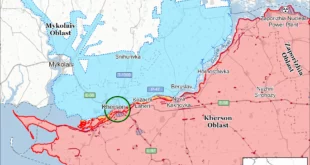 Former members of the Russian military have been secretly helping Iran obtain the technology needed to make missiles capable of hitting European capitals, a British newspaper claimed yesterday.
Former members of the Russian military have been secretly helping Iran obtain the technology needed to make missiles capable of hitting European capitals, a British newspaper claimed yesterday.
Citing anonymous “Western intelligence officials,” the Sunday Telegraph said the Russians were go-betweens as part of a multi-million-pound deal they negotiated between Iran and North Korea in 2003.
“It has enabled Teheran to receive regular clandestine shipments of top secret missile technology, believed to be channelled through Russia,” the newspaper reported in a front-page article.
A top Kremlin-connected Russian legislator denied the reports. Konstantin Kosachyov, chairman of the international affairs committee of the lower house of parliament, called on Russian government agencies to quickly respond to the Sunday Telegraph and “exclude the spiraling of speculation,” the Interfax news agency reported.
“But even now I have no doubts about our answer: Russia could not and, of course, did not, cooperate either with Iran or North Korea.”
The allegations came after US Secretary of State Condoleezza Rice feuded openly with her Russian counterpart Sergei Lavrov over Iran’s nuclear program while on a brief trip to Moscow on Saturday.
The article also emerged as Rice prepared to meet British Prime Minister Tony Blair in London later yesterday.
According to the Telegraph, Iran would be able to use its new technology to build a missile with a range of 3,500km.
“It is designed to carry a [1-tonne] payload, sufficient for a basic nuclear device,” the newspaper said.
It quoted a senior US official as saying Iran’s program was “sophisticated and getting larger and more accurate. They have had very much in mind the payload needed to carry a nuclear weapon.
“I think [Russian President Vladimir] Putin knows what the Iranians are doing.”
Russian analysts were divided over the possibility that Moscow had aided Tehran in its alleged quest to develop such long-range missiles.
“Without the president’s permission no one could do it,” Georgy Mirsky, an Academy of Sciences researcher, told Ekho Moskvy radio.
 Eurasia Press & News
Eurasia Press & News



